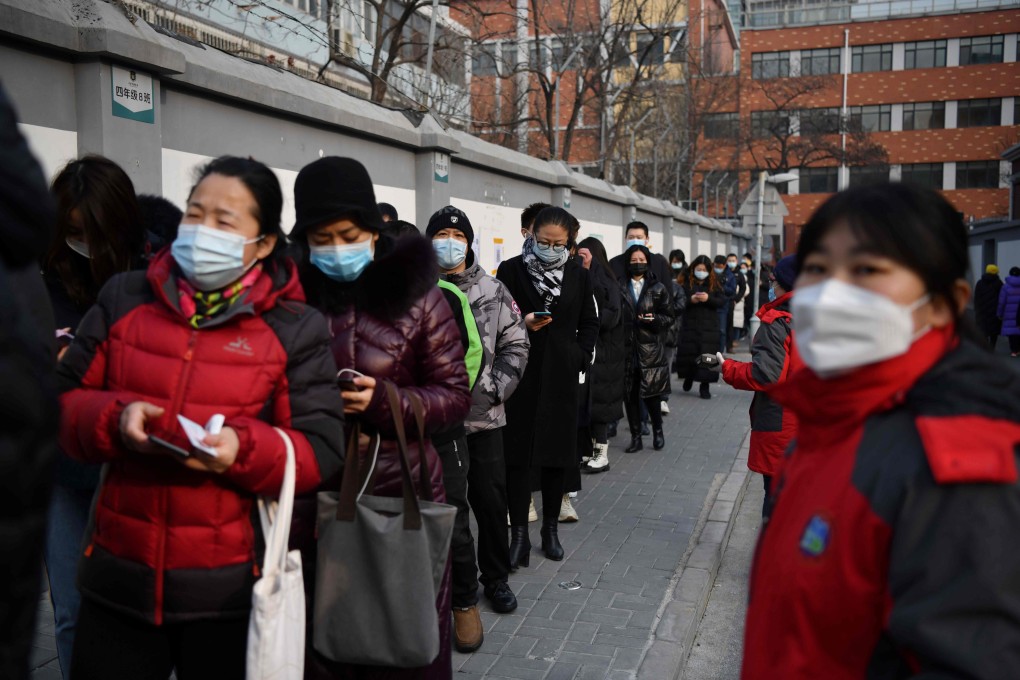Mass Covid-19 screening in Beijing after two cases of strain found in Britain
- More than 2 million people will be tested in two downtown districts as key political season looms
- Shopping centres and sporting venues transformed into testing stations overnight

The rapid mass campaign started on Friday, a day before the city’s legislature is expected to convene an annual meeting and with just weeks to go until the country’s political heavyweights arrive in the capital for the year’s most important political gatherings.
“All districts and work units must make epidemic prevention and control their top priority and spare no efforts in epidemic prevention and handling,” municipal government spokesman Tian Wei said on Friday afternoon, citing orders from the city’s Covid-19 task force.
Residents and employees of Beijing’s Dongcheng and Xicheng districts, where most of the central and municipal government agencies are located, were notified late on Thursday night that the tests would start the next morning.
Xicheng authorities said the district faced the mounting risk of “imported outbreaks” and would test all residents on Friday and Saturday to “ensure the life safety and health” of residents and employees.
Beijing has reported nearly 50 coronavirus cases since a fresh outbreak emerged in eastern Chaoyang district and later Shunyi in the city’s north and Daxing in the south.